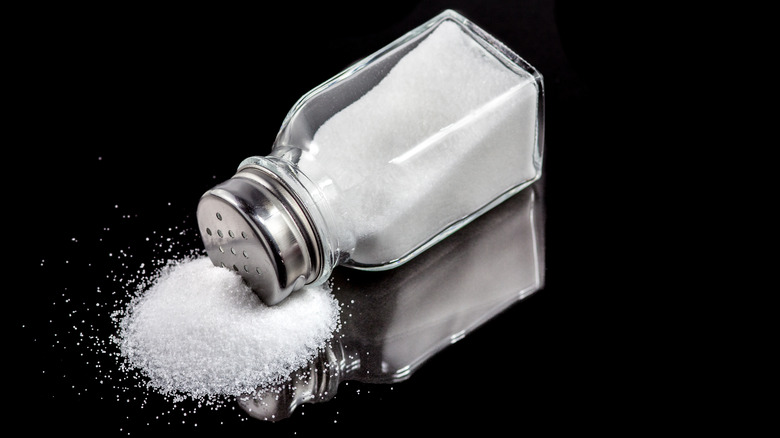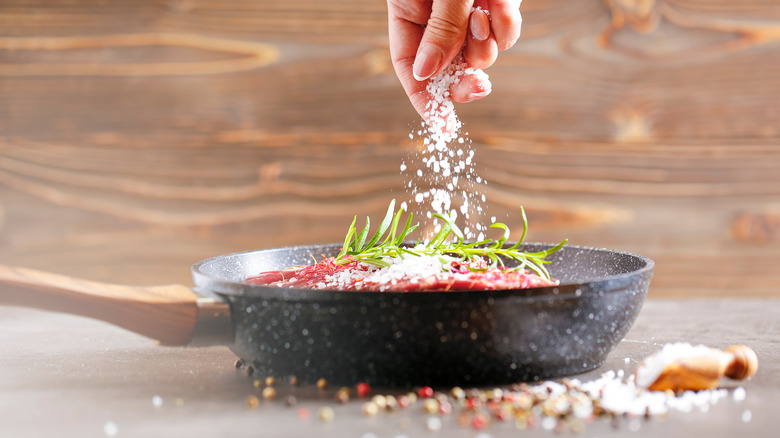New Study May Have You Banishing The Salt Shaker From Your Table
When thinking about crave-worthy meals, salty foods like french fries, soft pretzels, and instant noodles often come to mind.
But, while most of us know these foods contain a lot of salt, there are also food items with high sodium content that you might not realize. According to Healthline, some of the worst culprits are bagels, seafood, and cottage cheese.
Either way, salting your dishes can be dangerous. A new study by UK Biobank found that those who add extra salt to their meals are at a higher risk of dying prematurely, per The Guardian. Researchers gathered data from over 500,000 people over a period of nine years.
"To my knowledge, our study is the first to assess the relation between adding salt to foods and premature death," said Lu Qi of the Tulane University School of Public Health. "Even a modest reduction in sodium intake, by adding less or no salt to food at the table, is likely to result in substantial health benefits, especially when it is achieved in the general population."
A bit of salt can make a big impact on your health
The study noted that adding extra salt to a meal can shave more than two years off the life expectancy of men and a year and a half for women, compared to those who never add sodium to their food (via Science Daily).
However, before you throw away all your table salt, there were some limitations to the findings, including not knowing exactly how much salt was added to dishes, the possibility that adding more sodium to a meal could indicate an already unhealthy lifestyle, and the fact that participation was voluntary.
The human body also needs a certain amount of salt to be healthy, but we still haven't found that sweet spot between too much and too little, per The Guardian.
"So far, what the collective evidence about salt seems to indicate is that healthy people consuming what constitutes normal levels of ordinary salt need not worry too much about their salt intake," said Annika Rosengren, a senior researcher at the Sahlgrenska Academy at the University of Gothenburg, who was not involved in the study.
She said that eating vegetables can also help counterbalance the negative impacts of consuming salty meals. However, Rosengren did warn that those with a high risk of heart disease would benefit from cutting back on their sodium intake.

